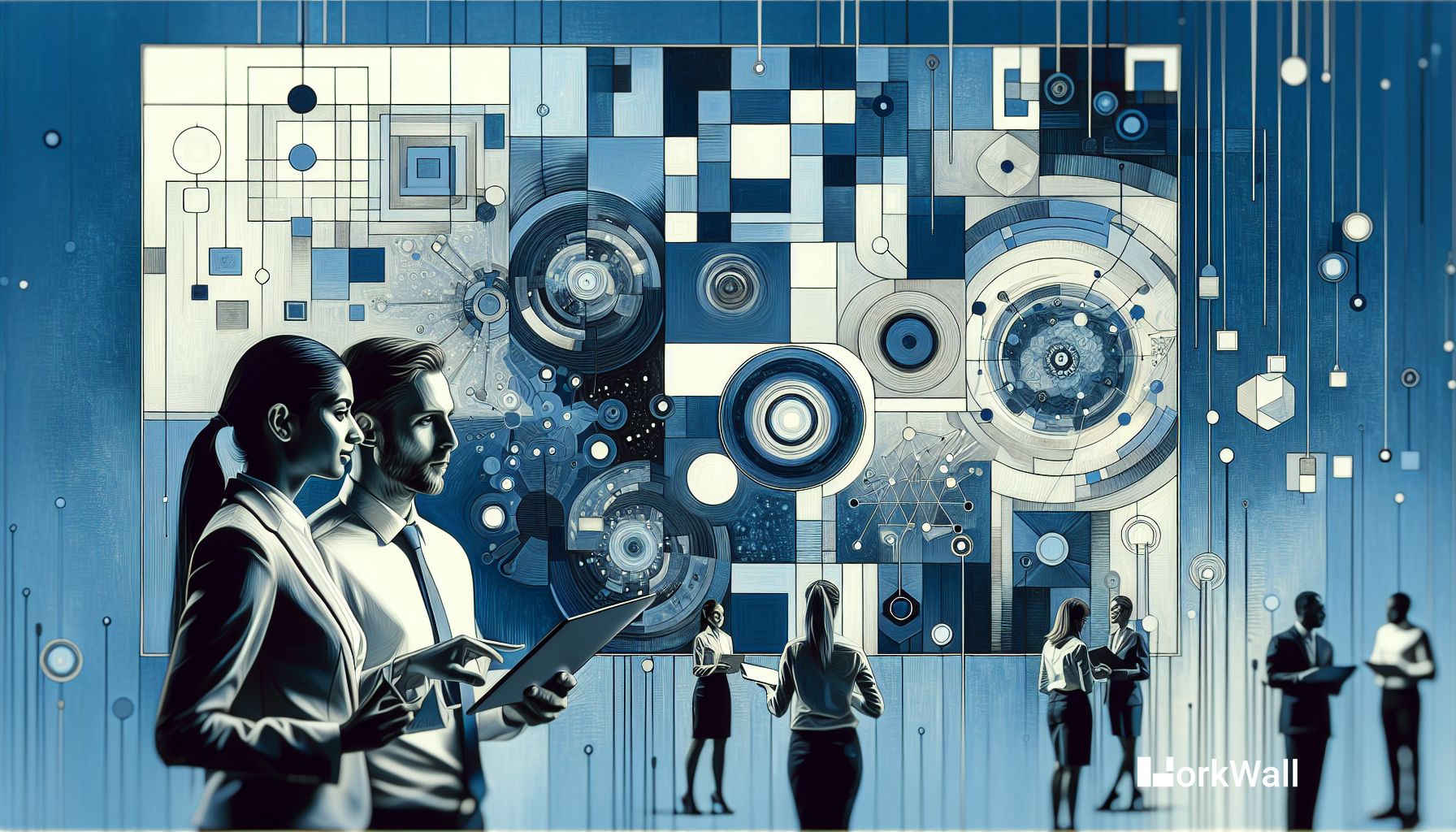Welcome to an era where artificial intelligence (AI) is not just a buzzword but a revolutionary force transforming global marketplaces. Leveraging AI technologies like Dynamics 365, Oracle Cloud, Amazon Web Services (AWS), Google Cloud, Azure, and various others, businesses are enhancing customer experiences, streamlining operations, and increasing efficiencies. If you're as fascinated as we are, buckle up! This journey is nothing short of thrilling.
How AI is Reshaping Global Marketplaces
With the integration of AI, simple online marketplaces have morphed into sophisticated platforms of efficient interactions and transactions. Imagine AI as the silent orchestra maestro, orchestrating every note to perfection, ensuring seamless harmony among buyers, sellers, and the marketplace itself.
Enhanced Customer Experiences
- Personalized Recommendations: AI technologies, backed by machine learning algorithms, can analyze user behavior and preferences. Platforms like Amazon and Workwall use this data to provide personalized recommendations, resulting in a more engaging user experience.
- 24/7 Customer Support: Thanks to AI chatbots, customer service is now available around the clock. No more waiting in endless queues; AI is here to handle queries almost instantaneously. Kudos to Microsoft Dynamics 365 and Salesforce for integrating such splendid features.
- Visual Search: Ever spotted something you love but don’t know its name? AI's visual search features allow users to upload images and find similar products. Google Cloud Vision is leading the charge here, making shopping as seamless as snapping a photo.
Streamlining Business Operations
- Efficient Inventory Management: AI aids in real-time tracking of stocks, predicting demand, and managing warehouse operations. Oracle Cloud and AWS offer robust solutions to eliminate supply chain inefficiencies.
- Automated Marketing: Using AI, marketers can automate campaigns to target potential customers better. This means more consistent outreach and reduced manual effort. Azure Machine Learning and Salesforce are notable for their advanced marketing AI capabilities.
- Fraud Detection: AI can spot unusual patterns and flag suspicious activities, protecting businesses and customers from fraud. Tools from AWS and Google Cloud have proved indispensable in this realm.
According to a 2022 study by McKinsey, companies that invest in AI see a 20% to 30% boost in operational efficiency. That's more than just a marginal gain—it's a game-changer!
The Developer’s Perspective: Building the Future
From a developer's point of view, working with AI has been nothing less than a treasure hunt, uncovering new possibilities at every turn. When integrating AI solutions like Azure Machine Learning or Open AI, developers can build more intuitive applications, improving functionality straightforwardly.
Tips for Developers:
- Leverage Pre-built Models: Services like Google Cloud's AutoML offer pre-built models that can save time and effort, allowing you to focus on customizations.
- Focus on Data Quality: AI models are only as good as the data they are trained on. Ensure your datasets are clean and representative of the problem you are solving.
- Continuous Learning: AI technology is evolving rapidly. Stay updated with platforms like Coursera and Udacity, offering specialized courses in AI and machine learning.
The Functional User’s Insight
For functional users focusing on the business side, AI can seem like a new wonder drug that promises to cure all operational ailments. From automating mundane tasks to providing actionable insights, AI is a functional user's dream come true.
Key Benefits for Functional Users:
- Real-time Analytics: With tools like Dynamics 365 and Oracle Analytics Cloud, functional users can obtain real-time insights into customer behavior, sales trends, and operational metrics.
- Effortless Integration: AI systems are highly integrative, seamlessly working with existing platforms like Office 365 and Salesforce. This means you can enhance your operations without the headache of overhauling your IT infrastructure.
- Improved Customer Relations: AI-driven CRM systems ensure that customer interactions are as smooth as butter, automatically logging interactions and providing recommendations for follow-ups.
The End User’s Point of View
From an end user’s perspective, AI might feel like having a personal assistant who knows you better than you do. AI-driven interfaces are more intuitive, recommendations are spot-on, and support is just a click away, 24/7.
What End Users Love:
- Convenience: AI takes the hassle out of finding what you need. Whether it’s a product recommendation on Amazon or a course suggestion on Coursera, AI delivers, making life simpler and more convenient.
- Instant Gratification: Chatbots like those powered by Workwall ensure that users receive instant replies to their queries, improving overall satisfaction rates.
- Personal Touch: AI provides personalized experiences that make users feel special. Customized emails, tailored content, and relevant product recommendations hit the sweet spot.
Market Trends and Industry News
The AI landscape is rapidly evolving, and staying updated with the latest trends is crucial. According to a Gartner Report, by 2025, 75% of enterprises will shift from piloting to operationalizing AI, leading to a fivefold increase in streaming data and analytics infrastructures.
- Voice Search Optimization: As AI continues to evolve, voice search is becoming a crucial SEO component. Amazon Alexa and Google Assistant are leading the way, making it essential for businesses to optimize for voice queries.
- AI in Healthcare: AI's role in healthcare is expanding, from diagnostic tools to personalized medicine. AWS and Google Cloud are actively developing healthcare-specific AI solutions.
- AI-Powered Cybersecurity: With increasing digitalization, cybersecurity threats are more prevalent. AI solutions from Microsoft Azure and Oracle Cloud are setting new standards in threat detection and prevention.
Some Humor to Lighten the Mood
Have you ever wondered if AI will take over the world? Well, until AI can make a decent coffee, we're probably safe. For now, let’s focus on how it’s making


